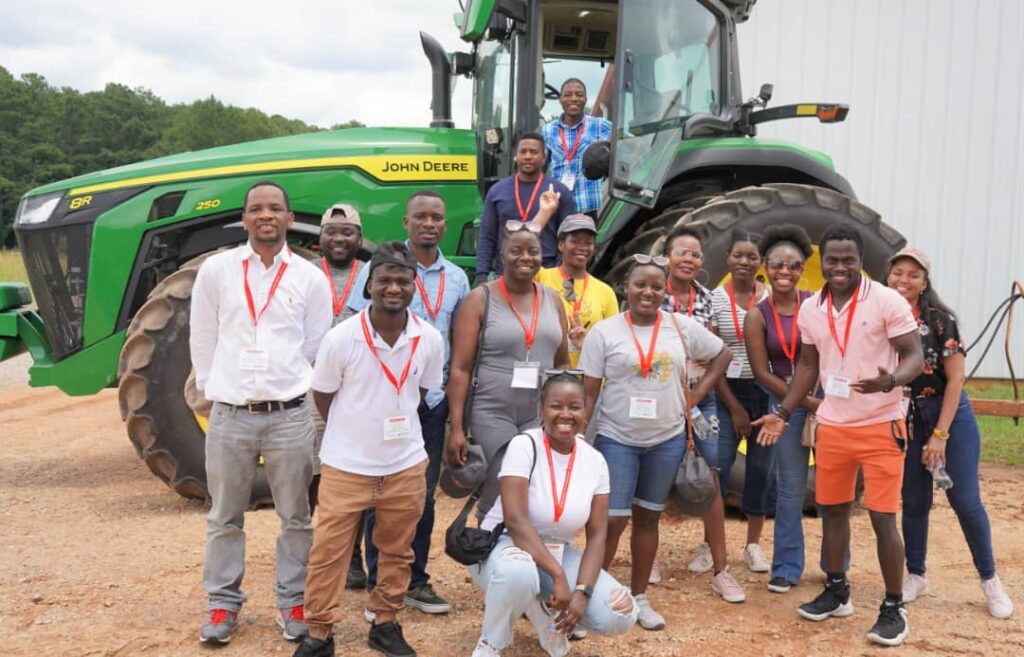By Mike Chipalasa

Fifteen Malawian postgraduate scholars recently participated in a three-day information exchange to share key learnings from their studies and gain insights from experts and students at the North Carolina State University’s College of Agriculture and Life Sciences International Programs.
The participating Malawi-based scholars are supported by the Agricultural Transformation Initiative (ATI) Fellowship and Scholarship Fund to continue their studies in agriculture-related fields at leading US universities in the areas of agriculture, business, data science, ecology/environment, economics, or engineering.
The goal of the program is for the scholars to use their gained knowledge and contribute to diversification of their local tobacco-reliant agricultural ecosystem when they return to Malawi.
Enid Banda, Biosystems Engineering Student at Michigan State University, said the scholarship offers a unique opportunity to learn in diverse fields such agriculture, economics and public policy.
“It’s quite huge and if we put all this together and get the opportunity to share this with fellow Malawians, I think the future of Malawi looks bright,” she said.
Malawi’s economy is one of the world’s most reliant economies on tobacco exports. The tobacco industry has been a major contributor to both human and environmental damage over the last century. While the impact on public health is common knowledge, the devastation tobacco farming causes to the environment is rarely discussed.
The growing and curing of the tobacco plant often results in severe deforestation, soil degradation, biodiversity loss and the use of pesticides. There is also research that shows there’s significant adverse effects on farmers’ health.
Under the World Health Organization (WHO) Framework Convention on Tobacco Control (FCTC), there is an obligation on countries to protect the environment in respect of tobacco cultivation, yet little progress has been made.
Scott Kleinberg, Director of Agriculture Programs and Partnerships, Foundation for a Smoke-Free World commented: “This scholarship fund strengthens local agricultural expertise by further developing the skills of promising students from Malawi who want to help increase the opportunities available to smallholder tobacco farmers to diversify away from tobacco production and improve their livelihoods.
“It was fascinating to hear about what the 15 Malawian scholars who came to North Carolina State are working on and see their excitement about applying the skills they are acquiring to the challenges Malawi faces. These students are going to go back and be leaders in academia, government or the private sector, bringing advanced science and methodologies to Malawi, so their agricultural sector can work better.”
North Carolina State University hosted the Malawi Scholars in partnership with the ATI Fellowship and Scholarship Fund.

